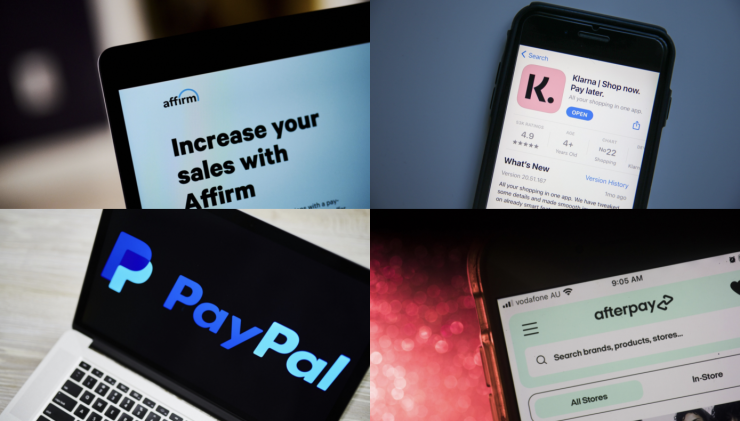The Consumer Financial Protection Bureau has opened an inquiry into the practices of five fintechs to address consumer risks within the booming buy now/pay later installment loan industry.
The move signals the first potential speed bump in the U.S. for the highflying BNPL industry, which has soared to $100 billion in loans worldwide in the last few years.
The CFPB has ordered Affirm, Afterpay, Klarna, PayPal and Zip to provide information to allow it to assess the impact on consumers of rising debt and the use of consumer data by the BNPL industry, it said Thursday.
In addition to these firms, several dozen startups and other lenders have rushed into the BNPL industry over the last couple of years, building on a model that originated in Australia and spread to Europe, where companies offer short-term loans to consumers at the point of sale or through digital channels.
The consumer bureau said it plans to examine buy now/pay later providers' consumer disclosures and fees, noting in its release that BNPL use began to surge in the U.S. during the pandemic and its growth has been explosive this holiday season, drawing attention from many directions.
“Buy now, pay later is the new version of the old layaway plan, but with modern, faster twists where the consumer gets the product immediately but gets the debt immediately too,” CFPB director Rohit Chopra said in a press release.

The CFPB’s move comes a day after U.S. Senator Jack Reed, D-R.I., and several colleagues in the Senate urged the CFPB in a
“Many BNPL providers structure these products in an effort to avoid certain consumer protection obligations,” Reed said in the letter, noting that BNPL loans do not receive all of the protections of credit cards.
In a hearing last month, House Democrats
Affirm, which went public early this year and has a market capitalization of $32 billion, said it welcomes the inquiry and supports regulatory efforts that would promote transparency in the buy now/pay later industry.
"For nearly a decade, Affirm has been advancing its mission to deliver honest financial products that improve lives, and we have never charged a late fee or hidden fee, ever," the company said in a statement.
Klarna said it is an advocate of "proportionate regulation" in a prepared statement. The company said it "will continue our work with regulators to inform them about how our products are structured, used, and benefit both consumers and retailers.”
Afterpay also issued a statement saying it welcomes the CFPB's inquiry, and says its products are less costly and provide better budgeting tools for responsible spending than traditional forms of credit. Afterpay said it halts purchases on consumers' accounts when they miss a payment. Block (formerly Square) agreed to buy Afterpay this year for $29 billion; the deal is expected to close in early 2022.
Other firms the CFPB flagged for its inquiry did not immediately respond for comment.
In the U.S., buy now/pay later loans are most popular with younger consumers, who say they prefer the simpler approach of repaying loans in structured segments, versus the complexity of traditional credit cards.
Most industry participants have built BNPL loans around a “Pay in 4” model where consumers with little or no credit history can qualify for an interest-free loan at checkout by providing a few pieces of information. The majority of such loans are typically repaid in four equal installments, but providers may extend loans for transactions over $200 for several months.
Merchants pay the loan providers a fee of 3% to 6% for the service, which reportedly boosts sales volume. Most consumers finance buy now/pay later loans using debit cards, but some repay the loans with direct payments or credit cards.
So far, nonbank providers of BNPL loans aren’t subject to the CFPB’s supervision, and the Federal Reserve’s Regulation Z doesn’t cover installment loans with fewer than five installments.
More than half of U.S. adults have tried a BNPL loan, according to a recent survey by The Ascent, and about 30% of users have fallen behind on loan repayments, according to a survey the software firm Qualtrics released in September. When consumers miss payments, some providers charge fees.
“It’s good to see the CFPB take this much-needed step to protect consumers. As the rise in banking activity outside our nation’s well-regulated and well-supervised banking system accelerates, so too does the risk to consumers who do not receive the same level of protection from fintech companies as they do from traditional banks,” Richard Hunt, president and CEO of the Consumer Bankers Association, said in a statement.
Regulators in the U.K. and Australia have increased their scrutiny of the buy now/pay later segment, though none have issued new regulations.





